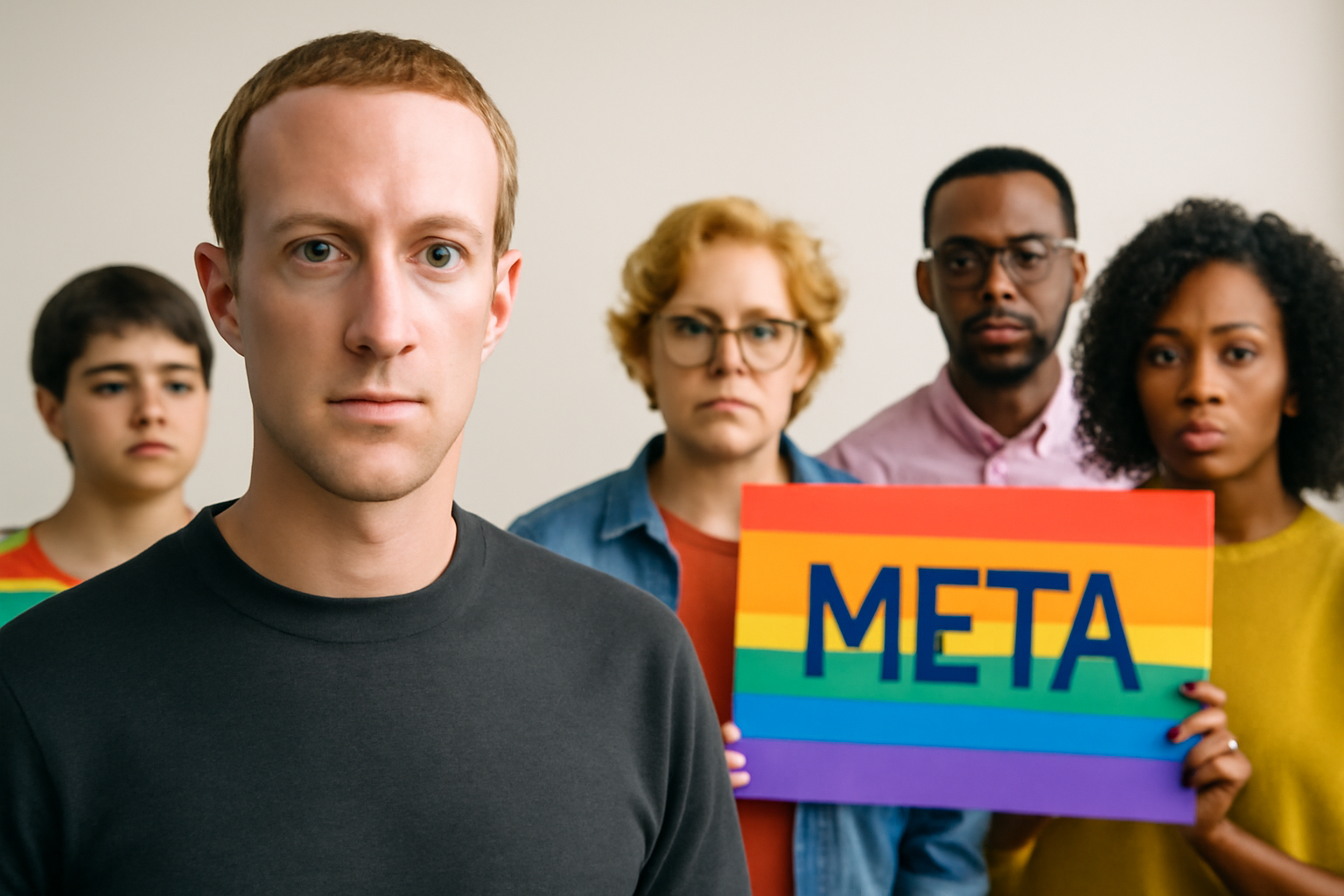
Recent policy updates from tech giant Meta have sparked widespread controversy and concern among LGBTQ+ employees and allies. These changes allow users to make derogatory claims against LGBTQ+ individuals by labeling them with "mental illness" or "abnormality." Additionally, Meta has announced the termination of its diversity, equity, and inclusion (DEI) programs, which has further fueled backlash.
Change in Content Moderation Policies
Earlier this week, Meta CEO Mark Zuckerberg revealed sweeping changes in the company’s content moderation policies. These include reducing the number of content moderators and fact-checkers, as well as relaxing the restrictions on hate speech. The new guidelines permit language that many consider to be offensive and harmful towards LGBTQ+ individuals. Statements such as "Trans people aren’t real," "Gays are not normal," and "Trans women are not truly women" are now allowed under the guise of promoting free expression.
These policy changes have been met with immediate criticism from within the company. One employee noted on an internal communication platform, "I am LGBT and mentally ill. Just to let you know that I’ll be taking time out to look after my mental health." This message, along with others expressing dissent, was reportedly deleted from the platform.
Impact on Diversity, Equity, and Inclusion Initiatives
In addition to changes in content moderation, Meta has announced the end of its DEI programs in hiring, training, and supplier selection. An internal memo from Janelle Gale, Meta's vice president of human resources, explained that the term "DEI" has become contentious, and Meta is adjusting its strategies accordingly. The company plans to dissolve its DEI team, end efforts to work with diverse-owned businesses, and discontinue ensuring diverse candidate pools for job opportunities. Instead, Meta intends to focus on "fair and consistent practices that mitigate bias for all, no matter your background."
The announcement has caused consternation among Meta employees, particularly those who are part of or ally with the LGBTQ+ community. In an internal message, one employee lamented, "This is unfortunate, disheartening, and upsetting to read." Another expressed regret, "What happened to the company I joined all those years ago?"
Reactions and Concerns
Helle Thorning-Schmidt, co-chair of Meta’s Oversight Board, voiced her concerns regarding the recent policy changes, stating, "We’re very concerned about gender rights, LGBTQ+ rights, trans people’s rights on the platforms." She emphasized the potential real-world harm that could result from the increased visibility of hate speech.
While a Meta policy team member defended the changes as a reaffirmation of free expression, emphasizing that it would spark conversation and counterspeech on these important topics, many employees remain unconvinced. "No one is excited or happy about these changes," an employee told 404 Media, noting that particularly those who identify with the LGBTQ+ community feel unsupported and are contemplating leaving the company.
The rollback of DEI commitments at Meta mirrors a growing trend among major corporations, including Walmart, Stanley Black & Decker, Molson Coors, Jack Daniels, Ford Motor Company, John Deere, Lowe’s Hardware, Target, and Harley-Davidson. This movement has sparked national debates about the role of diversity initiatives in corporate culture and the balance between free expression and hate speech prevention.
As the conversation around these changes continues, the implications for Meta's corporate culture and its community of users remain uncertain. What is clear, however, is that these policy shifts have prompted significant internal and external debate, with many questioning the potential impacts on marginalized communities and Meta's broader commitment to inclusivity.
Related Posts
Kelly Clarkson Delights Fans with Playful Cover and Queer-Friendly Vibes
Kelly Clarkson charms with a fun song cover Kelly Clarkson, who we've come love as both an incredible singer and host on her daytime talk show, recently won over fans with a delightful performance on her Kellyoke segment. She's famous now not just as an artist but also as a masterful cover performer, and this time she chose a classic that really resonated with her LGBTQ+ fans. Lately, Clarkson's [...]
Trump Inaugurated as 47th President Amid Concerns for LGBTQ+ Community
Donald Trump has been sworn in as President once again, marking his second term as America's 47th leader. This significant event in U.S. politics promises profound impacts, especially concerning LGBTQ+ rights. Taking office: promises and challenges Amidst a harsh winter storm, Trump took his oath indoors at U.S. Capitol on January 20. Alongside him, Vice-President JD Vance also stepped up, both [...]
Daniel Craig's "Queer" Overlooked by BAFTA: A Surprising Omission
Daniel Craig's film, Queer, snubbed by BAFTAs despite rave reviews In a surprising twist, Daniel Craig's newest film, *Queer*, failed completely on BAFTA's nomination list this year. It's a head-scratcher, considering how critics have sung its praises and Craig delivered such a standout performance. Yet, not a single nod from BAFTA. Go figure. fans and critics baffled by BAFTA snub The exclusio [...]